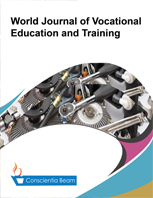School-Community Relationship and School System Effectiveness in Secondary Schools in Cross River State
DOI:
https://doi.org/10.18488/journal.119.2019.11.11.19Abstract
This study assessed school-community relationship and school system effectiveness in secondary schools in Cross River State. Four null hypotheses were formulated accordingly as guide to the study. The study adopted descriptive survey research design. A total of 1,480 academic staff which comprised 271 principals, and 396 vice principals selected through census technique, and 813 teachers selected using simple random sampling technique, were used to elicit data for the study. “School-Community Relationship and Secondary School System Effectiveness Questionnaire (SCRSSSEQ)” was used as instrument for data collection. Collected data were analyzed using descriptive statistics, while the null hypotheses were all tested at .05 level of significance using Pearson Product Moment Correlation with the aid of SPSS version 21. Findings from the study revealed that: parent-teachers’ relationship, school-community use of resources, school-community communication and school-community collaboration are significantly related to secondary school system effectiveness respectively, in Calabar Municipal Area of Cross River State. It was concluded that generally that school community relationship has significant relationship with school system effectiveness respectively. Based on the findings of this study, it was recommended among others that; principals should setup active parents’ teachers’ associations in their schools with leaders of the association comprising of community members and staff of the school. This will serve as a link that binds the school to the community and will create a platform for discussing and settling disputes.

